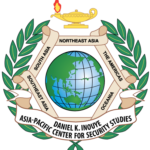This paper emphasizes the need for regional cooperation and the challenges involved in addressing crisis management in North Korea.
Excerpt:
While North Korea has an image of a “rogue state” that threatens neighboring countries with missiles and nuclear arsenals, we must not forget that North Korean people are experiencing starvation, malnutrition, poor health system, swine flu, flooding, drought, and land-slides, all of which will only be exacerbated in the wake of the global COVID-19 crisis. North Korea’s internal problems are expected to continue to grow in the foreseeable future and disasters experienced during the summer of 2020 will exacerbate current circumstances. Separating HADR from sanction issues and being proactive in providing assistance to a suffering population may prove to be the most effective strategy for engaging with Pyongyang.
Published: July 15, 2020
Category: Perspectives
Volume: 21 - 2020
Author: Deon Canyon,Sungmin Cho






HADR is not only critical for the welfare and protection of North Korea’s population but may serve as a function to bolster a deliberate effort to pursue rapprochement. It is interesting how policymakers can confuse concessions that are related to food and economic assistance as actions that would render the United States vulnerable in a security sense. I’m a current Norwich University Graduate study on my thesis track looking at how the US and NK may negotiate a comprehensive nuclear deal that will stick. I would like to get your point of view on how threat consensus impacts the way the US develops policy towards NK.
vr,
Emilio
emilio_moreno42@yahoo.com
emilio.e.morenorodriguez.mil@mail.mil